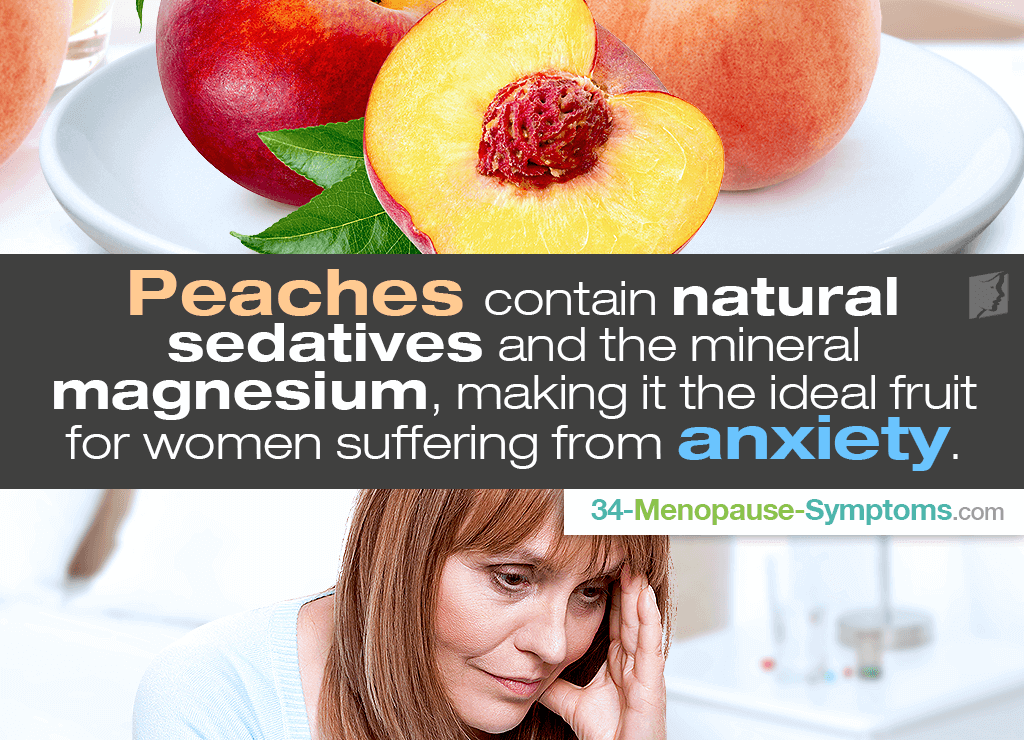A condition which affects millions of Americans, anxiety is a stressful symptom of menopause that can trigger serious problems in both a woman's personal and professional life. Luckily, making some dietary adjustments can help. Read on to learn more about peaches for anxiety during menopause.
Why Are Peaches Good for Anxiety?
Considered a "Superfood"
Recently, a number of foods with significant health benefits have been labelled "superfoods". These foods are known to have various phytonutrients, which are thought to improve brain and body functions. Peaches are one of the fruits often included in this group.
Contain Natural Sugars
Consuming excessive amounts of processed sugar can negatively affect mental health since sugar highs can worsen anxiety, but a small amount of natural sugar is necessary to a healthy diet. The natural sweetness of the peach makes it perfect for naturally boosting your energy levels.
Act as a Natural Sedative
Renowned as the “Fruit of Calmness” in Hungary, peaches contain natural sedatives and the mineral magnesium, making it the ideal fruit for women suffering from anxiety during menopause. Furthermore, if eaten before bed, it has also been suggested that peaches can aid sleep.
Promote Healthy Skin
Peaches contain vitamin A and beta-carotene, which are essential for maintaining healthy skin and mucus membranes. Their ability to help improve skin quality is yet another positive side effect as feeling good about your appearance will help improve self-esteem and reduce the chances of feeling social anxiety.
Aid Digestion
Peaches may help reduce bloating and constipation because of the insoluble fiber they contain, which adds bulk to stool and helps move food through the intestines. The fruit also contains soluble fiber, which feeds beneficial bacteria in your gut. Because the brain and gastrointestinal system are interconnected, intestinal distress can lead to stress and anxiety.
More Information
While diet alterations can help keep menopause symptoms, such as anxiety, at bay, ultimate relief can be found by pursuing adequate treatments that target the underlying cause of hormonal imbalance. Click on the following link for anxiety treatments to learn natural and effective ways to treat all menopause symptoms.
Sources
- Harvard Health Publishing. (n.d.). The gut-brain connection. Retrieved February 7, 2019, from https://www.health.harvard.edu/diseases-and-conditions/the-gut-brain-connection
- Harvard University: The Graduate School of Arts and Sciences. (2015). Natural and Added Sugars: Two Sides of the Same Coin. Retrieved February 7, 2019, from http://sitn.hms.harvard.edu/flash/2015/natural-and-added-sugars-two-sides-of-the-same-coin/
- Rutgers: New Jersey Agricultural Experiment Station. (2015). Health Benefits of Peaches: A Delicious Summer Fruit. Retrieved February 7, 2019, from https://njaes.rutgers.edu/sshw/message/message.php?p=Health&m=301
- Yang, J. et al. (2012). Effect of dietary fiber on constipation: a meta analysis. World Journal of Gastroenterology, 18(48), 7378-7383. doi: 10.3748/wjg.v18.i48.7378




